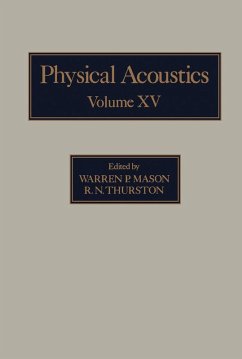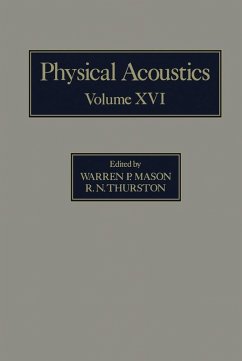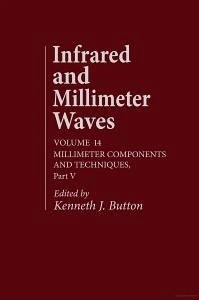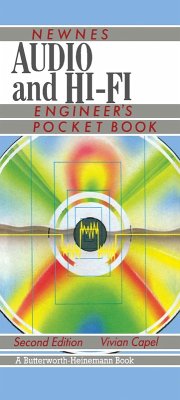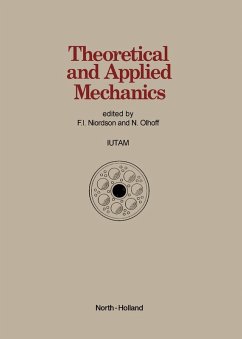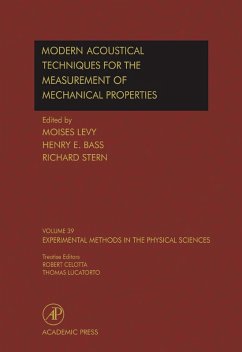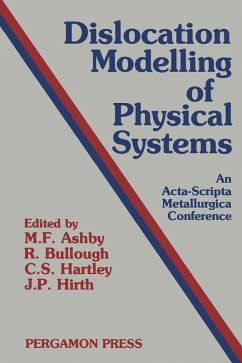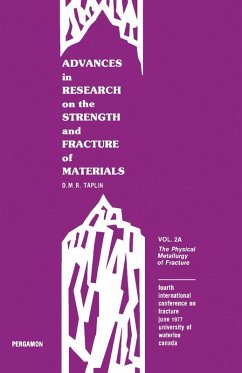
Physical Acoustics V14 (eBook, PDF)
Principles and Methods
Redaktion: Mason, Warren P.

PAYBACK Punkte
20 °P sammeln!
Physical Acoustics: Principles and Methods, Volume XIV is a five-chapter text that covers significant studies on acoustic microscopy, sound propagation in liquid crystals, ultrasonic transducers, and ultrasonic flowmeters. The opening chapter discusses techniques of acoustic microscopy, aberration and resolution performance, acoustic lens transfer functions, antireflection coatings, and both transmission and reflection acoustic microscopy. The following chapter deals with the applications to the states called liquid crystals or anisotropic liquids, states in which the material flows but yet ha...
Physical Acoustics: Principles and Methods, Volume XIV is a five-chapter text that covers significant studies on acoustic microscopy, sound propagation in liquid crystals, ultrasonic transducers, and ultrasonic flowmeters. The opening chapter discusses techniques of acoustic microscopy, aberration and resolution performance, acoustic lens transfer functions, antireflection coatings, and both transmission and reflection acoustic microscopy. The following chapter deals with the applications to the states called liquid crystals or anisotropic liquids, states in which the material flows but yet has a long-range order that makes it macroscopically anisotropic. The third chapter focuses on the principles and practical applications of electromagnetic transducers for both surface waves and bulk waves. The fourth chapter surveys first the characterization of ultrasonic transducers for materials testing and then compares actual responses to those of an ""ideal"" transducer, elaborating on the many important factors that affect the results obtained with an ultrasonic testing system. The final chapter explains the principles underlying ultrasonic measurements of flow, specifically covering eight different categories of ultrasonic flow measurement principles and their industrial applications indicated. This book will be of great value to researchers in their fields of electronics technology and applied and engineering mechanics.
Dieser Download kann aus rechtlichen Gründen nur mit Rechnungsadresse in A, B, BG, CY, CZ, D, DK, EW, E, FIN, F, GR, HR, H, IRL, I, LT, L, LR, M, NL, PL, P, R, S, SLO, SK ausgeliefert werden.




